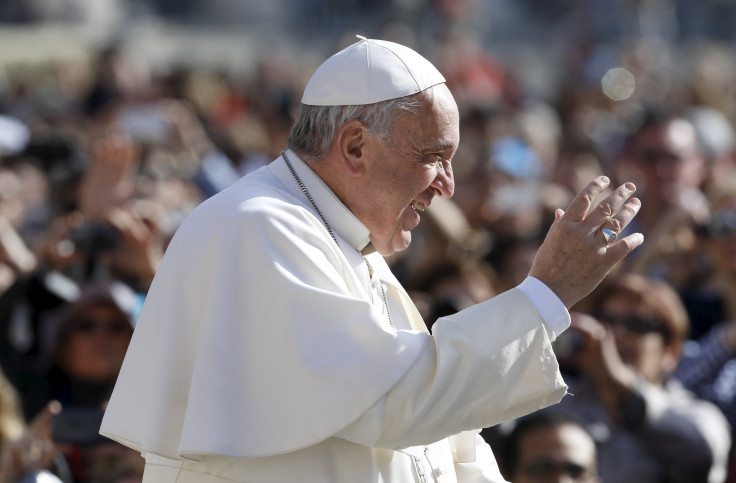Pope Francis Cuba Visit: Catholic Church's Tense Relations With Communist State To Improve With Papal Trip

When Pope Francis lands in Cuba this September, he will be arriving in an atmosphere perhaps more receptive to the Catholic Church than ever since the advent of Communist rule 56 years ago. While the precedent set by his predecessors’ visits leads some to expect a further improvement in historically tense relations between the Cuban government and the church, experts also speculate that the pontiff’s visit could even herald the revival of Catholic practice in a society that has for decades shunned religiosity. And it may help usher in changes for Cuba as a whole.
“Since the last papal visit in 2012, the church has been allowed to be more politically active in advocating for the release of political dissidents, for example,” said Jill Goldenziel, a research fellow at the International Security Program at the Harvard Kennedy School in Massachusetts. “The papal visit was a tremendous help in opening Cuba to the world, and, as a result, visits by the pope have been tremendously significant in Cuban politics for Catholics and non-Catholics alike.”
Francis will be the third pope to visit Cuba. His predecessor Benedict XVI traveled to the island in 2012, and John Paul II paid a historic visit in 1998, the first ever by a pope to Cuba. The three visits in 17 years represent a deepening involvement by the church in Cuba, according to the Rev. James Bretzke, a professor of theology at Boston College. “Certainly there has been a real development in the perceptions of the Catholic Church in Cuba since the Castro Revolution in the late 1950s,” he said.
In the years immediately following Fidel Castro’s rise to power in 1959, Cuba’s new Communist government was hostile to the church. Castro modified the constitution in 1962 to make Cuba an atheist state; the practice of religion officially became persecuted by the government. The ruling Communist Party closed its ranks to practicing Catholics, who were also barred from holding public office. Not only were priests expelled and sent to labor camps during this time, but churches were confiscated by the government to be used as schools and warehouses.
A gradual shift away from Catholicism’s ostracism by the state over the last two decades has been due, in large part, to the efforts of the Vatican. The high-profile papal visits enabled the church to slowly begin to play a more public role in Cuba in recent years, said Goldenziel.
As relations with the church began to improve around John Paul’s visit, the government started to revive Christmas holiday observances while allowing Masses to finally be broadcast through official media channels. Similarly, Benedict’s visit led to the government declaring Good Friday an official public holiday. Alongside Catholicism’s increasing public visibility in Cuba has been a growing tolerance of political activity by the church.
Pope Francis played a role in helping to broker a historic diplomatic deal between Cuba and the United States in December. The church's role in ending the five-decade freeze already is reaping rewards for Catholic practice in the country, even ahead of the pope’s visit. Cuban authorities gave permission late last year for the construction of the first new churches on the island in more than five decades. Such developments raise hopes for the church that Catholicism will be revived in other ways, including lifting the ban on private Catholic education as well as more access to media without the Communist Party as an intermediary.
“I suspect they are anticipating their role in negotiations will have a positive effect between the church and the regime,” Eusebio Mujal-Leon, a professor of political science at Georgetown University in Washington, told Fox News Latino in an interview.
As the church as an institution begins to make gains, there nonetheless remains a question about the receptivity of Cubans more broadly to Catholicism. While the first Latin American pope himself is extremely popular in the country and the church itself is generally well-liked, a recent survey sponsored by Univision Noticias and Fusion Networks found that only 27 percent of the country identified as Catholic, with the largest group of respondents, 44 percent, identifying themselves as not religious.
The possibility that the pope’s visit could help energize Catholic practice is set against the reality of low church attendance in the country, according to Goldenziel. “There is definitely speculation that the visit will have a lot of religious significance,” she said. “Though it’s hard to say how it will affect church attendance, it may be likely to spur more religious sentiment in Cuba.”
© Copyright IBTimes 2024. All rights reserved.






















